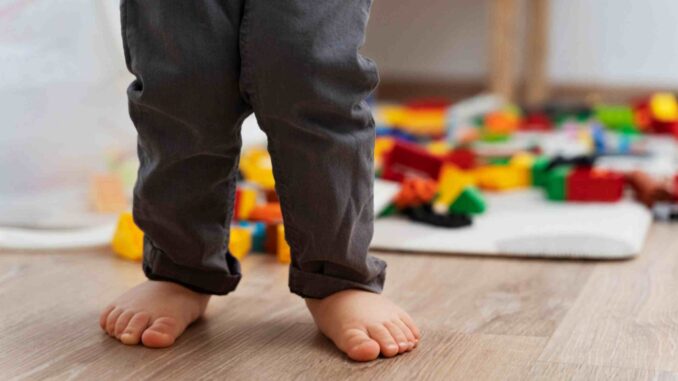
Hello Guys Welcome to this my blog today I am going to write a some 10 Ways to Help Your 1.5-Year-Old Learn to Walk “At one and a half years old, babies fall less often, take more steps, and after a while they begin to run. But they still do it clumsily, in their own way, in a childish way,” she described the progress of the child’s development by the age of 1.5 years.
10 Ways to Help Your 1.5-Year-Old Learn to Walk:
- Provide a Safe Environment: Ensure that the space where your child will be practicing walking is safe and free from obstacles. Remove any hazards or sharp objects, and consider padding sharp corners or edges.
- Encourage Exploration: Allow your child plenty of opportunities to explore their environment while standing and cruising (walking while holding onto furniture). Encourage them to reach for toys or objects just out of reach, which will motivate them to take steps.
- Offer Support: Stand or kneel in front of your child, encouraging them to take steps towards you. Hold out your hands or offer a stable object, like a toy or piece of furniture, for them to hold onto as they practice walking.
- Use Toys as Incentives: Place toys a short distance away from your child and encourage them to walk towards them. Use colorful or noisy toys to capture their attention and motivate them to move
What is a codependent relationship and how to get out of it?
- Celebrate Progress: Praise your child and celebrate their achievements, no matter how small. Positive reinforcement will boost their confidence and encourage them to continue practicing.
- Be Patient: Every child develops at their own pace, so be patient and avoid comparing your child to others. Provide support and encouragement without putting pressure on them to reach milestones by a specific age.
- Allow Frequent Opportunities to Practice: Encourage your child to walk as much as possible throughout the day. Offer plenty of opportunities for practice both indoors and outdoors, allowing them to gain confidence in different environments.
- Model Walking: Demonstrate walking for your child by walking around them or alongside them. Children often learn by imitation, so seeing you walk can motivate them to do the same.
- Consult a Pediatrician if Concerned: If you have concerns about your child’s development or if they seem significantly behind in reaching milestones, consult with a pediatrician. They can provide guidance and support tailored to your child’s specific needs.
- Remember that every child is unique, and developmental milestones can vary. By creating a supportive and encouraging environment, you can help your child develop the skills they need to walk and keep up with developmental norms at their own pace.
See also: “Soup Safety: What Varieties to Avoid When Feeding Children”
Leave a Reply